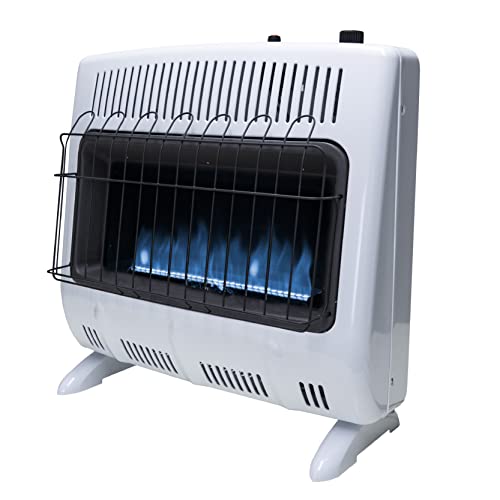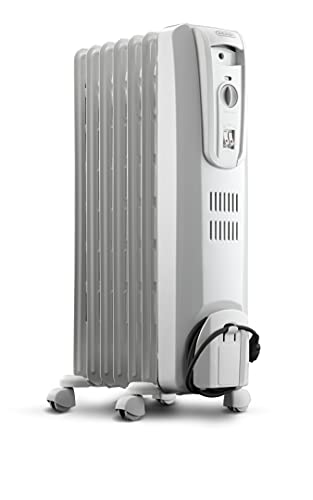
Driving around in an RV can be lots of fun and there are so many adventures to have in this kind of vehicle. However, if it’s not properly heated, even the comfiest and luxurious RV can feel unbearable.
That’s why I always make sure my RV is heated up during the winter months — it becomes such a wonderful haven when you’re comfortable and know it’s chilly outside.
So, which type of RV furnace should your vehicle have? Let’s find out!
Quick Furnace-Related Questions to Ask Yourself
Before we jump into the types of RV furnaces you can choose from, it’s important that you know what your needs are. There are two questions you can ask yourself to determine what you’re looking for.
Size
Before you buy a furnace, take a good look at your RV and the space you have. Your new furnace should not only fit in well but also be compatible with your vehicle. You should measure the amount of space that you have to avoid future frustration or disappointment.
Type
Although there are only two types of RV furnaces to choose from, you need to be sure about which one will be best for your RV. We’ll take a closer look at the types in just a moment, so stick around!
Types of RV Furnaces
1. Direct Discharge
A direct discharge furnace works by blowing air directly from the faceplate. These furnaces are lightweight and compact, so they’re ideal for smaller RVs or those who don’t have a lot of space to space.
2. Ducted Furnace
With this type of furnace, the air is blown through air ducts in the floor or ceiling of the RV. That way, the heat will be spread more evenly and you can easily close or open the vents in the various parts of the RV.
3. Gas Heater
Gas heaters work with two types of gas — propane and natural. Natural gas consists mostly of methane while propane gas is stored as a liquid.
Both work equally well but are highly flammable, so if you use this type of heater you have to be careful. Even just a small leak can cause disaster. Still, gas heaters are fairly easy and cheap to maintain and use.
Vent-Free Propane Heater
This is an aftermarket heater and is very portable and silent — ideal for smaller RVs. However, it is a bit difficult to connect to propane systems, so you’ll need to have them professionally installed and you will need good ventilation.
4. Electric Heater
As you may guess from the name, electric heaters don’t use gas and work with electricity to produce heat. They are much safer than gas heaters and don’t produce any harmful byproducts, so they’re very popular.
These heaters are also compact and lightweight, so they are suitable for smaller RVs or if you don’t have lots of spare space. However, they can only heat a specific space at a time, so they’re not good for heating the entire RV.
Also, electric heaters generally aren’t built into RVs, so they tip over and can lead to fires.
Electric Heat Pump Air Conditioners
These heaters are built into the AC system and are like mini-splits. They are ideal for campgrounds that don’t charge extra for electricity. They’re not good in very low temperatures, unfortunately.
Electric Space Heaters
If you’re looking for heaters like the ones you’d use in your home, you should consider electric space heaters. They provide dry heat, are quiet to run, and are highly portable. They do require a lot of electricity, though.
5. Oil-Powered Heater
These heaters heat up really fast and work the same way as gas heaters. But they are able to keep your RV heated for longer and are safe too, because no carbon monoxide is produced.
On the other hand, there is the risk of fire and burns, so you still have to be careful with oil-powered heaters.
6. Hydronic Heat Systems
This heating system runs on electricity and diesel and is typically found in the more high-end RV models. They don’t use propane and heat water while being very fuel-efficient. They do need electricity to work, though.
7. Wood Stove
You can get an endless amount of relatively cheap and free heat with a wood stove, and it can be used for cooking as well. However, there are several safety concerns with these heaters, and many people prefer to avoid using them in their RVs.
Key Features to Look For in RV Heaters
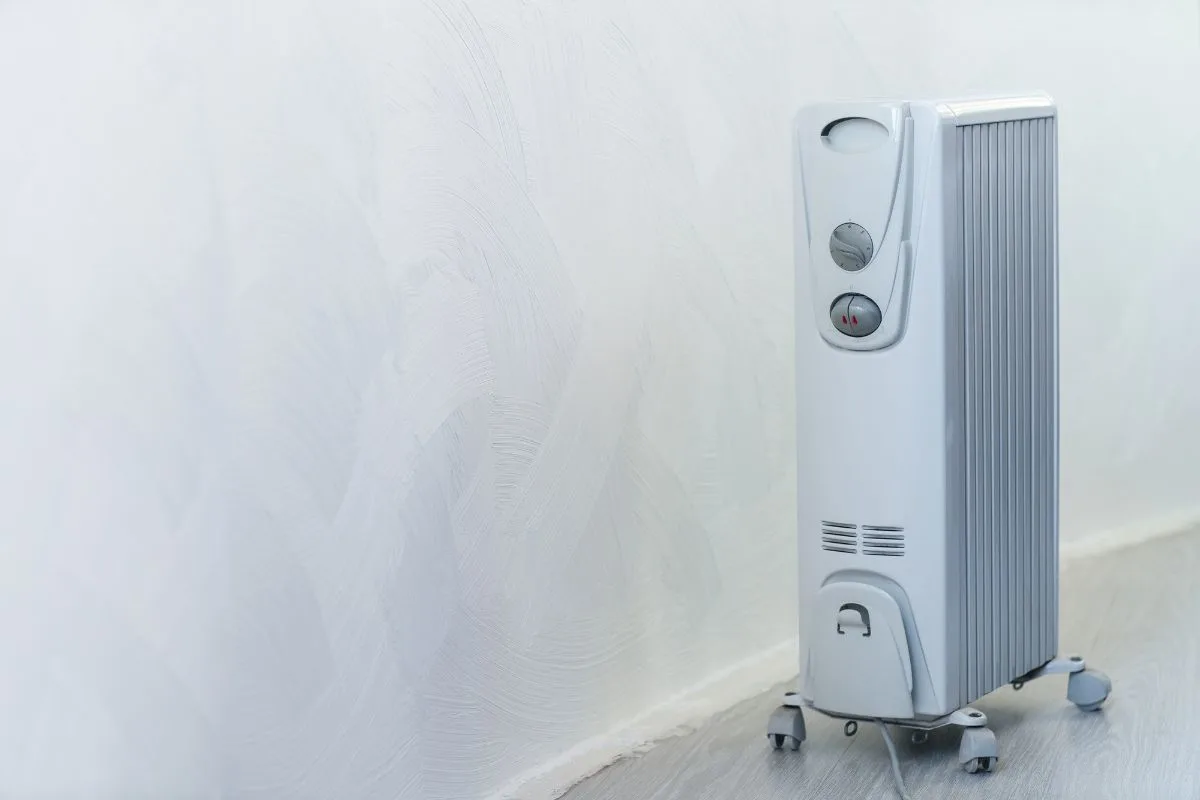
There are a few things to keep in mind when it comes to RV furnaces and heaters. I’ll briefly explain them all to you so you can make an informed decision when buying a new one.
Safety Features
Rv heaters are great for keeping warm, but because they can start fires, they are definitely safety hazards. However, the best RV heaters are designed with good safety features, so you should inspect them closely.
There should be features like overheating protection, remote controls, auto shut-off valves, cool-touch surfaces, and inner switches for extra protection.
Power Consumption
You should consider how much power your heater is going to need. To determine this, look at the overall wattage, the voltage, and the current of the heater. These elements affect how much electricity a heater uses and how much heat it can produce. You should also keep in mind how much gas your gas heater will use.
Remember, a bigger RV needs a heater with more heating capacity, so make sure you choose a powerful one if your RV is large.
Efficiency
RV heaters’ efficiency is measured via British Thermal Units (BTUs). This is what will help you determine how efficiently your heater burns fuel or how much electricity will be needed to heat up a room or your entire RV. Ideally, you want a heater that can heat a large area without using too much energy.
Other Considerations
There are a few other things to keep in mind when you go shopping for an RV heater/furnace.
Noise Level
It’s important that you know how much noise the heater is going to make. Look at online reviews and compare different models before you make a purchase. Ideally, you should go for a heater that doesn’t make a lot of noise. You’ll find that if a heater has a fan, it will be noisier.
Cost
This is something that will depend on your budget, but you should keep an eye on the price of your heater as well as the cost of maintenance. If a heater comes with good safety features and a few extra additional features, it might be worth spending a little bit more on it.
Ease of Use
Naturally, you’ll want a heater that isn’t difficult to use and won’t pose a challenge every time you want to use it.
Benefits of RV Heaters
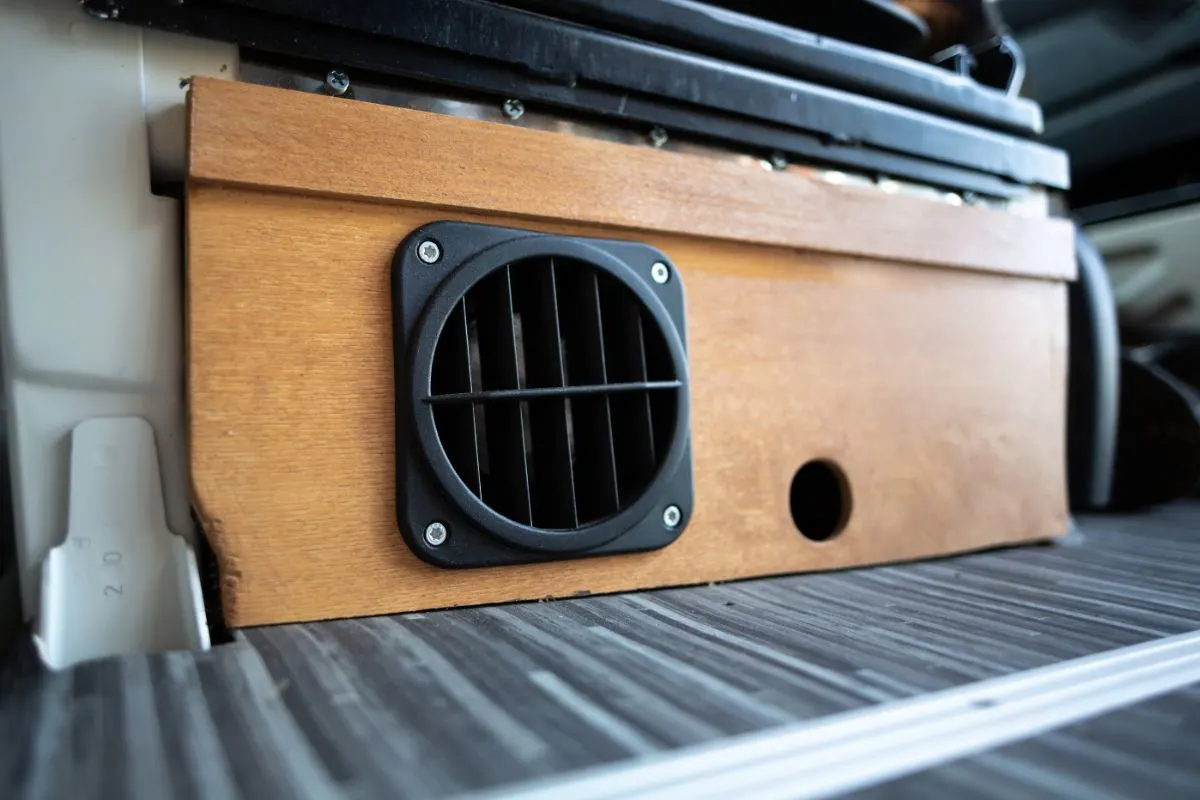
Right, so now that you know all about the various heater options you have, let’s take a brief look at the benefits of using a heater in an RV.
Heat!
The most obvious benefit is the heat that these appliances produce that keeps you and your family warm when it’s freezing outside. Also, keeping your RV warm inside ensures that your other appliances don’t get condensation damage due to the cold.
Freedom
When your RV is properly heated, you have the freedom to travel just about anywhere you want to. That way, the fun never has to stop! You will be able to explore new places with your RV whenever you feel like it and the winter months won’t stand in your way.
Range of Choice
There is more than one way to heat up your RV, so you have a variety of choices to select from. You can easily find the best heater for your budget and your RV.
Important: RV Furnace Safety
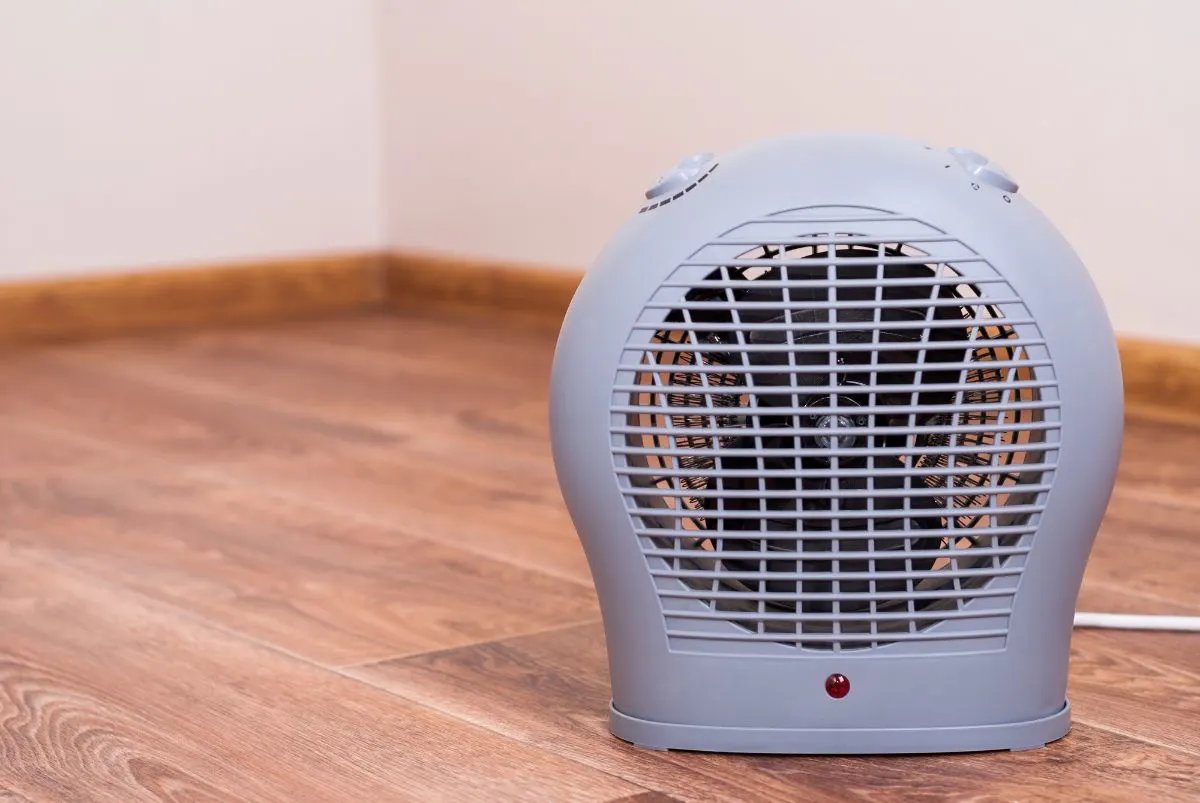
I feel it’s important to make note that even when you have a heater and furnace that promises to be safe, you should always be careful with these appliances. Take care at all times so you can be assured your family and vehicle are always safe.
Make sure that you maintain your furnace and heater well so it’s always in the best possible shape. Have carbon monoxide detectors in your RV and always keep fire extinguishers close at hand.
Frequently Asked Questions
What Type of Heater Does an RV Use?
RVs use two main types of heaters that can be broken down into more categories if you like: propane and electric. There are benefits and drawbacks to all of them, so it’s important that you know enough about them to make informed choices when shopping for a heater.
What Is the Cheapest Way to Heat an RV?
Typically, gas and diesel heaters tend to be the cheapest ways to heat up RVs because they’re very cost-effective. They also provide dry heat, so condensation isn’t something to worry about.
How Do You Keep RV Pipes From Freezing When Camping?
To keep your RV’s pipes safe and prevent freezing when you’re out in the elements, winterize your system. That way, your pipes won’t freeze. However, this will result in the inability to use your plumbing.
You can also use an RV furnace that is able to keep the vehicle’s basement warm at all times. Standard RV heaters won’t cut it, though, and you’ll need hydronic systems or forced air propane heaters for this purpose.



